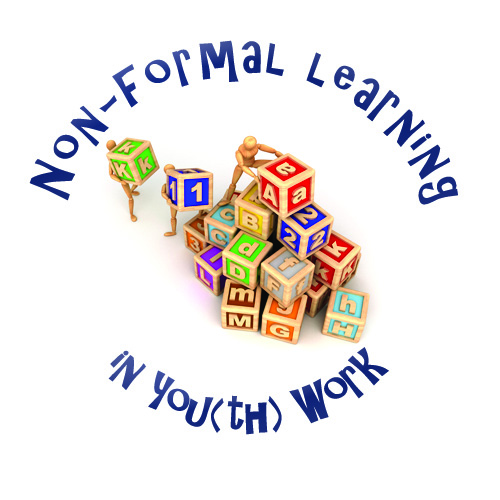
” Non
– formal learning in You(th) work”
Non
– formal learning in You(th) work”
Training course on tools, methods, techniques of non – formal education with individuals and groups with special focus on learning processes in youth work activities
12 – 20 April 2014, Sfantu Gheorghe, Romania
Themes of the training course:
The recognition of non – formal learning and introduction of its possibilities within youth work
To build a fundamental base for the essential motivation in early age and develop and improve needed learning competences for Life Long Learning of young people.
To improve professional competences of youth workers, youth leaders on planning and managing the learning processes of individuals and groups.
The overall aim of training course is to train youth workers, youth leaders on being able to assess and discover the learning motivation and learning styles of young people. To identify and improve needed competences of young people through youth work activities. To be able to prepare, run and evaluate different type of youth work activities based on the learning styles and needed competences of the certain target person or target groups by using diverse educational methods e.g. learning through sports, learning through arts, intercultural learning, etc. based on the proposals of the European Youth Strategy “Investing and empowering young people”.
Learning objectives of the training course are:
To get acquainted with the proposals of the European Youth Strategy “Investing and empowering young people”;
To identify and define the differences and similarities between non – formal education and formal education;
To foster understanding on the meanings of formal, non – formal and informal learning;
To define individual and group learning, discovering different learning styles;
To clarify the special characteristics and different developmental phases of a youth group;
To be able to develop and improve needed competences of young people through youth work;
To identify and define the special characteristics and tools, techniques and methods of non – formal learning within youth work;
To get acquainted with special learning fields e.g. learning through sports, learning through arts, intercultural learning;
To be able to prepare, run and evaluate youth work activities based on learning styles and needed competence improvements of participants;
To prepare projects for international youth activities according to the proposals of Youth in Action programme.
The methodology of the training course:
The training course is based on methodology of non – formal education. It is all about learning as non – formal, informal and formal learning; learning forms, types and styles; learning phases of individuals and groups, group dynamics, experiential learning and self – directed learning; special fields of non – formal learning, planning and managing learning of young people and it is all about in youth work context.
All the methods will be creative, participatory and learner – centred. The training course will be designed by experienced trainers’ team and revised based on the needs and expectations of participants and following the outcomes of self – assessment processes of participants.
Planned methods which will be used: individual work, pair work, small group work, role play, case study, theatre, sport, creating montage, feedback, art as painting, dance, etc.
The programme consists of 30% of theoretical input and 70% of practical actions. All theoretical input will be put in practice during the training course and assess by participants concerning their youth work.
